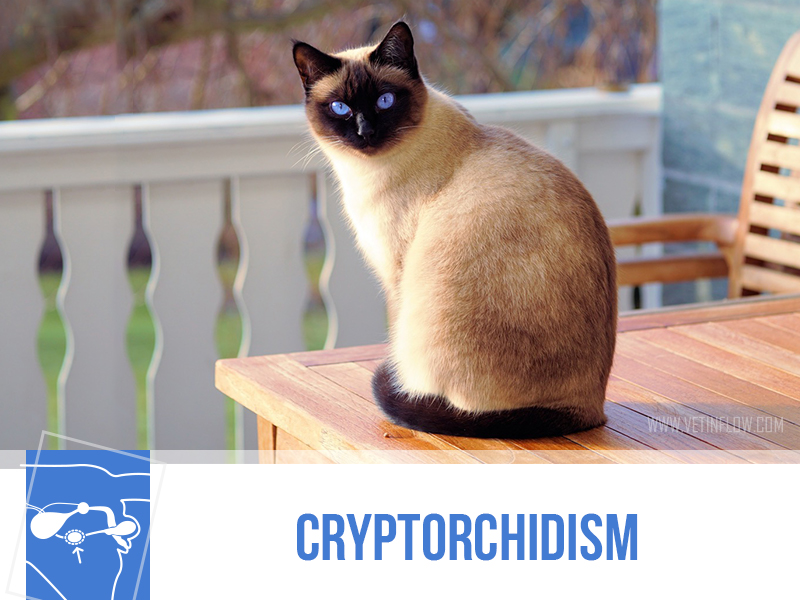
Cryptorchidism

Cryptorchidism is described as the failure of one or both testicles to descend to the scrotum. This descent usually happens in about 2 to 6 months as animals are born with testicles that reside in their abdomen and then slowly but surely descend to their final position.
As far as we know, what causes testicles to not descend correctly is most likely genetic but there isn't much information available in cats. It's much more frequent and most often talked about in dogs, especially because there are several dog breeds who have a higher incidence - for cats there is about a 1 to 1.7% incidence overall.
They can be palpated if they are retained in the inguinal canal but if they are still in the abdomen, advanced imaging like an ultrasound will be required to see if they are really there or if for some reason they failed to form at all.
This distinction is particularly important because, while a retained testicle by itself is not painful, these abdominal or inguinal testicles are at a much higher risk of cancer or of twisting the blood vessels, nerves and muscles that support them. Be on the lookout for acute abdominal pain in your cat, as this might indicate a torsion has happened and needs to be seen by a vet!
Cats that only have one retained testicle may still be fertile but as it is a genetic condition, it's best to remove these cats from the breeding pool to lower the risk of other animals with retained testicles.
Do you suspect your purring partner may have cryptorchidism? Bring them over to your vet. They will be more than happy to do the necessary tests to confirm what is going on and recommend the best way to proceed!
Would you like to know more about cats and dogs? Check our Feline and Canine Courses:
Feline courses
Canine courses
Published: 13 Jun 2017
Read the previous article: Blood in a dog's urine

